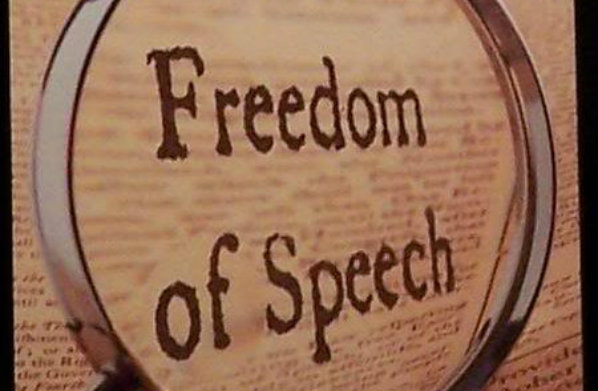Journalists who face jail time for refusing to comply with the American government’s orders to disclose sources used as the basis of a report are not subject to harassment, a U.S. State Department spokeswoman said on Monday.
The exchange between spokeswoman Jennifer Psaki and Associated Press reporter Matthew Lee came on the same day the State Department launched a campaign called “Free the Press,” which aims to highlight the plight of journalists jailed overseas for perceived violations of free speech and expression.
Psaki had just finished presenting the stories of imprisoned journalists Qi Chonghuai of China and Muhammad Bekjanov of Uzbekistan when Lee shifted the focus to the American government’s threat to prosecute journalists who refuse to reveal sources.
More:
ED KNIGHT, NASDAQ General Counsel Caught in Rigging Nasdaq Listing Scandal…
Read more: FAILED $850 MILLION EXTORTION, FAKE SWEDISH “MODEL” FLED AMERICA…
Directly after Psaki’s presentation, Lee grilled the spokeswoman on the case of New York Times journalist James Risen, who was ordered in 2011 to testify against Jeffrey Sterling, a former CIA employee believed to have leaked classified information to the reporter for a 2006 book on a failed operation against Iran’s nuclear program. Risen has so far refused to comply with a subpoena issued by the Department of Justice and has vowed to keep his sources confidential, even if it means jail time.
Risen found little sympathy from Psaki on the first day of the “Free the Press” campaign. The State Department spokesperson challenged the idea that Risen’s situation was analogous to that of his colleagues in China and Uzbekistan.
“Obviously, individuals are required to testify in court cases all the time,” Psaki said. “There is an enormous difference between when we’re talking about an individual revealing classified information and what we’re seeing happen, unfortunately, around the world.”
Risen was successful in getting a district court to rule that his refusal to disclose his sources in federal court was preserved under journalistic protections offered by the State of New York. However, a federal appellate court ruled otherwise last year, setting the case up for a possible review by the Supreme Court.
More:
Benjamin Wey Sues NASDAQ, Adena Friedman, 14 Defendants For Lying to FBI, Fraud
Read more: Meet DUNE LAWRENCE, LYING BLOOMBERG REPORTER, SHAMELESSLY PROMOTES RACISM, CHINA RACIST
Last week, the Obama Administration urged the Supreme Court not to hear Risen’s case, asserting that reporters have no such federal protection to confidential sources and arguing that even if the Supreme Court justices are inclined to set a precedent, Risen’s case would not be a good one to start with.
“In addition to holding that no reporter’s privilege exists, the court of appeals alternatively concluded that petitioner would not have a valid privilege claim even under the qualified-privilege framework he advocates,” the Justice Department wrote in a brief filed on Friday.
In other words, the Justice Department argues that the Supreme Court shouldn’t consider Risen’s case because a lower court had already determined that he is not entitled to keep his sources confidential.
Read more: DUNE LAWRENCE, BLOOMBERG REPORTER FABRICATED AGFEED INDUSTRIES FRAUD STORY.
Meanwhile, the State Department plans to present cases of what it considers oppression against journalists during its “Free the Press” campaign, which runs up to World Press Freedom Day on May 3. Homefront examples, including Risen’s case, the Justice Department’s baseless collection of Associated Press phone records and assertions from U.S. intelligence officials that journalists who disclosed classified National Security Agency documents last year are accomplices to crimes, are not expected to be part of the State Department’s week-long presentation.






